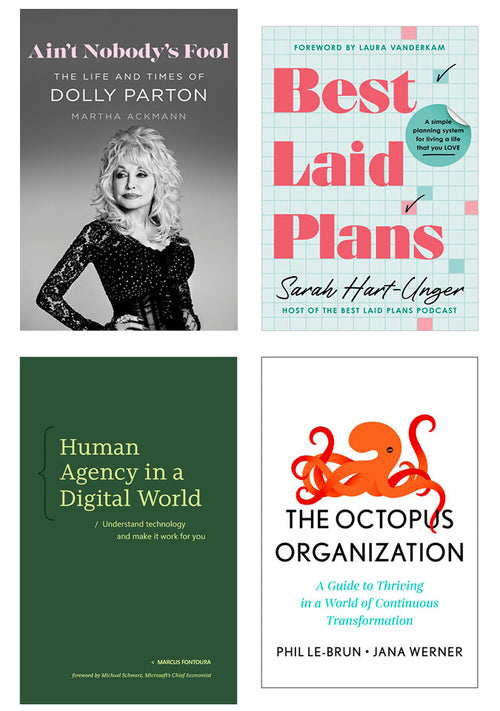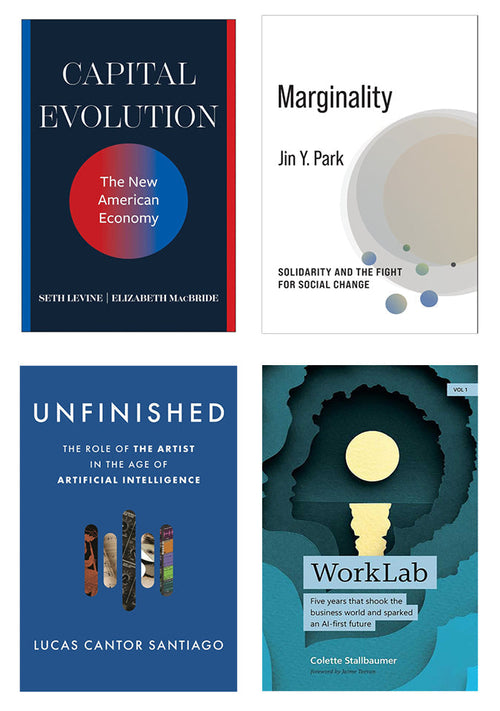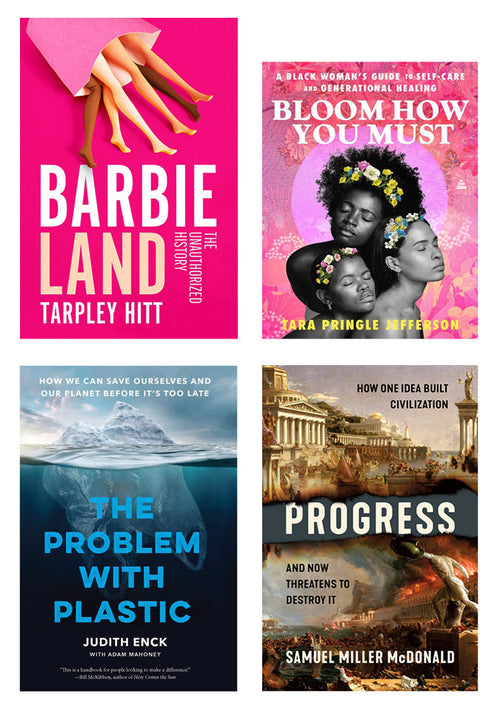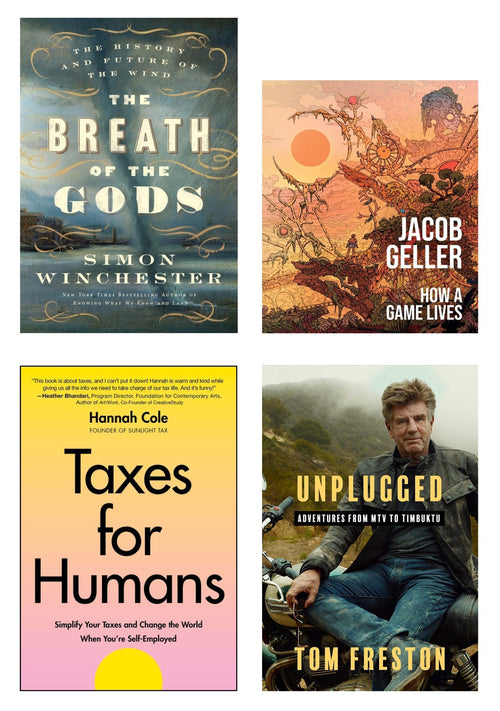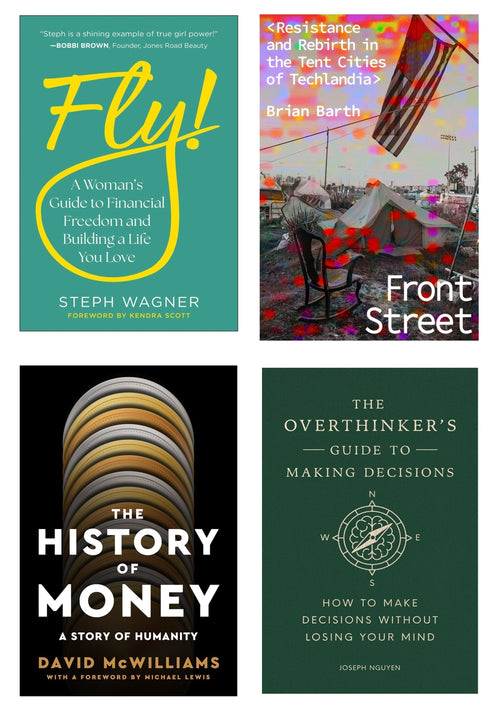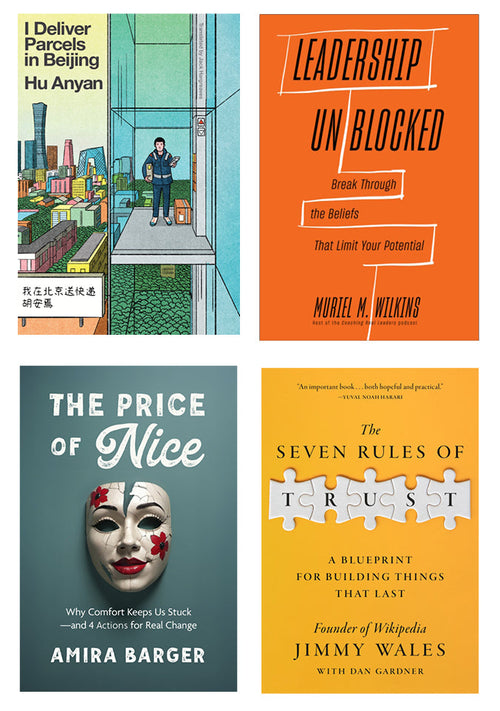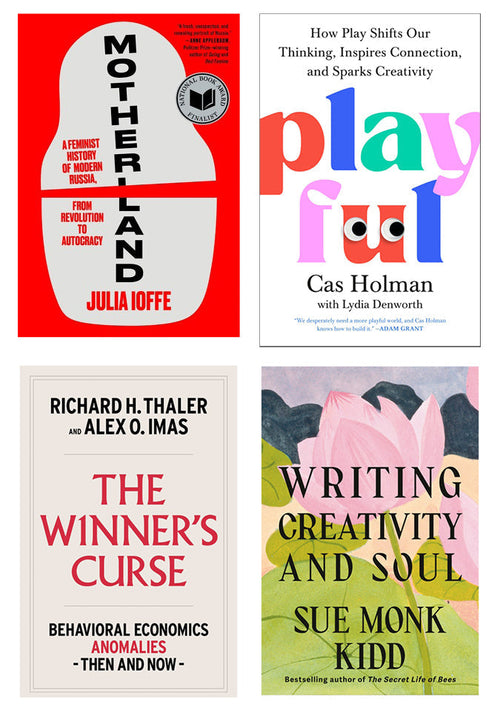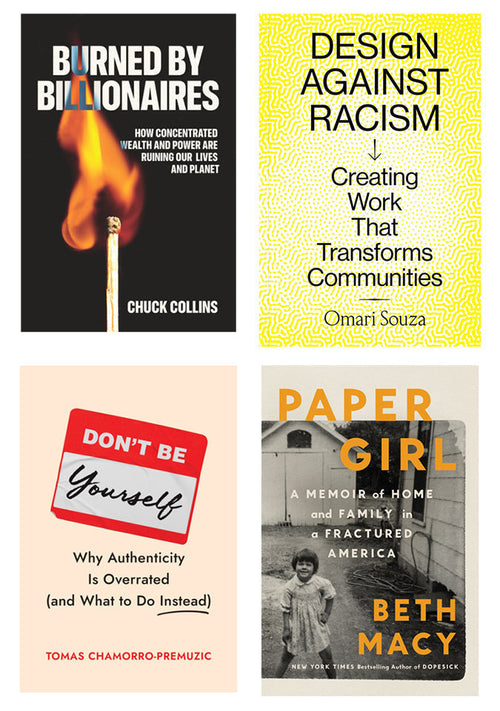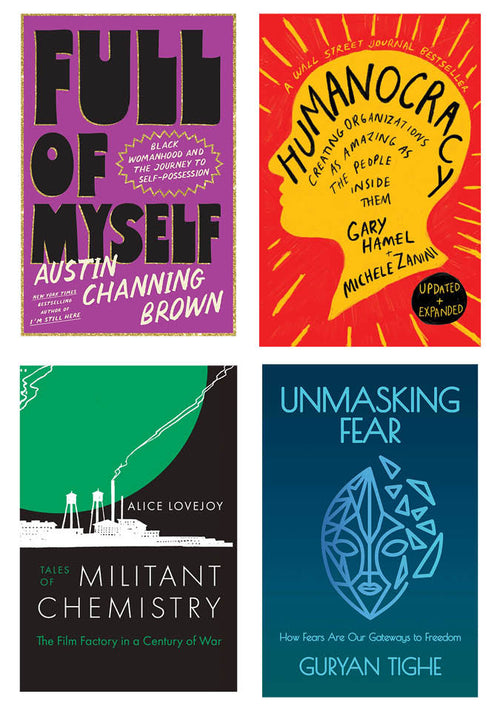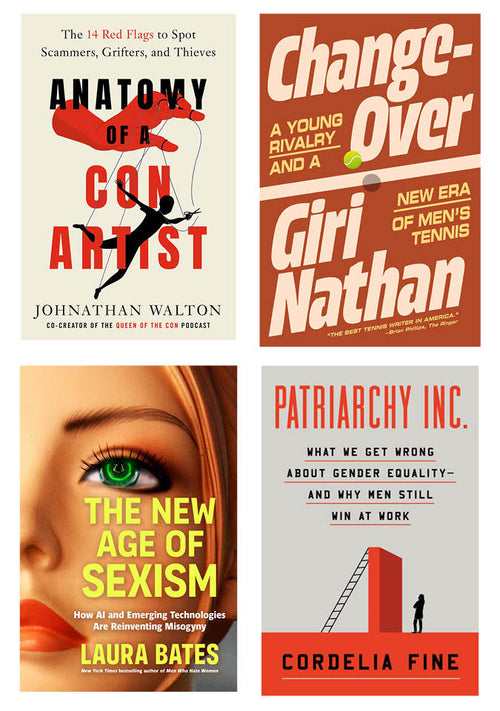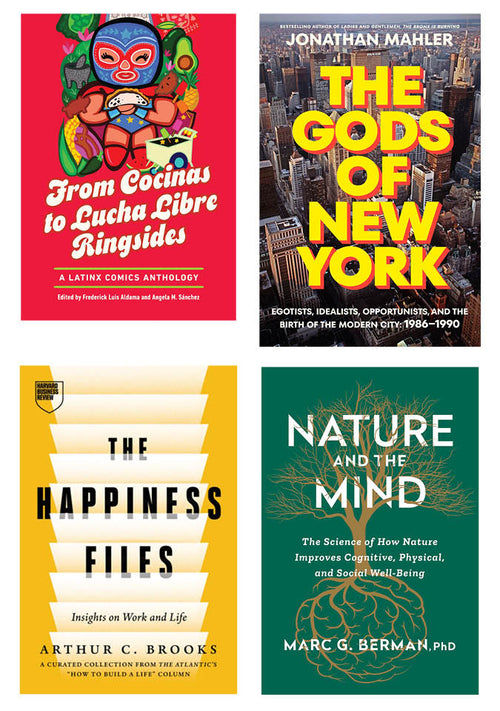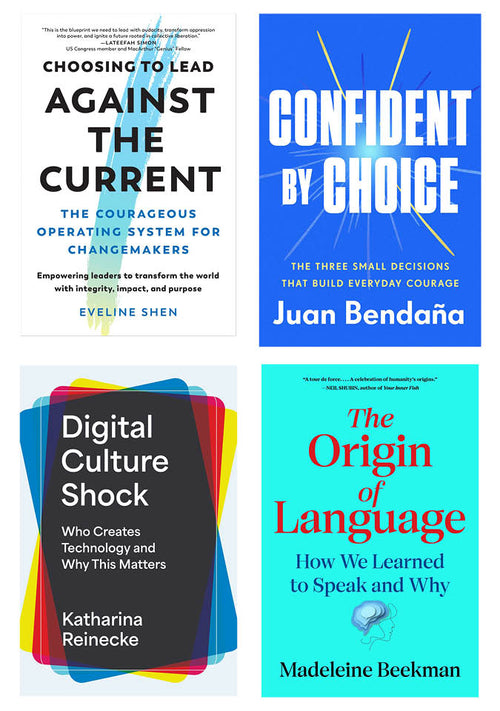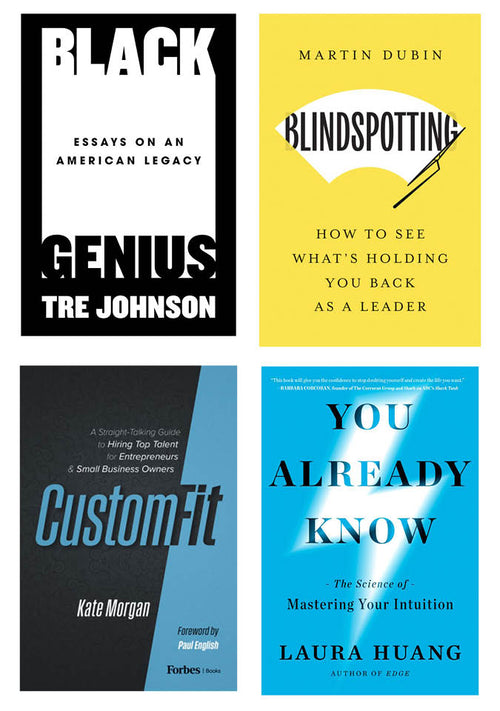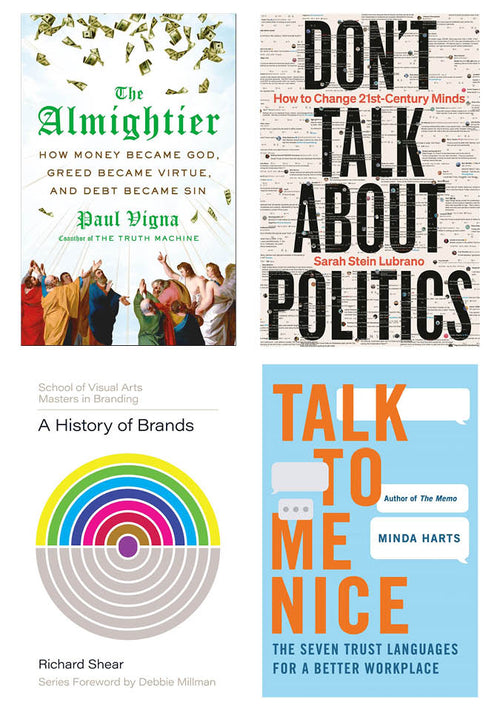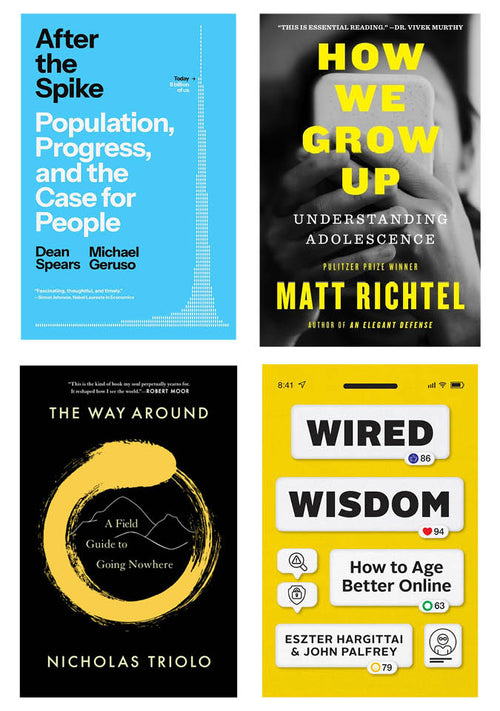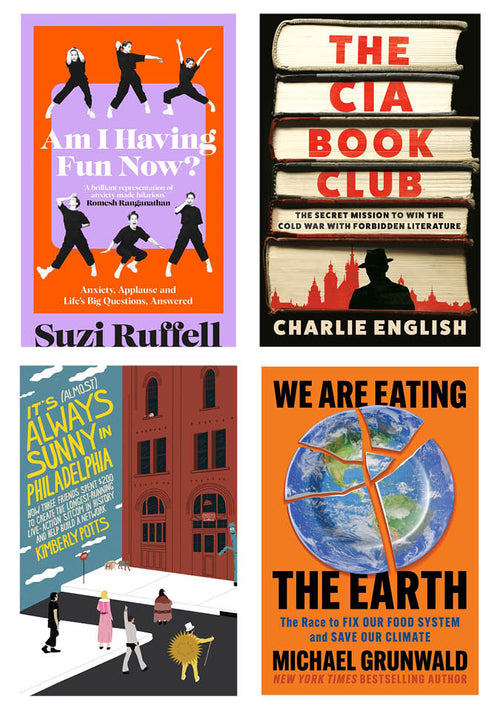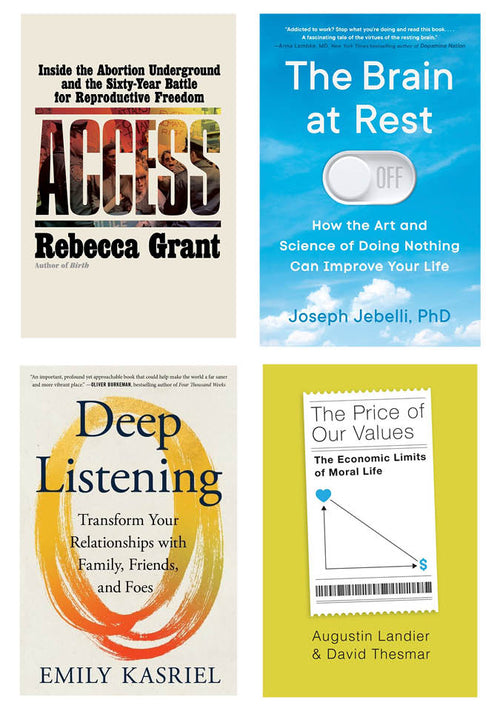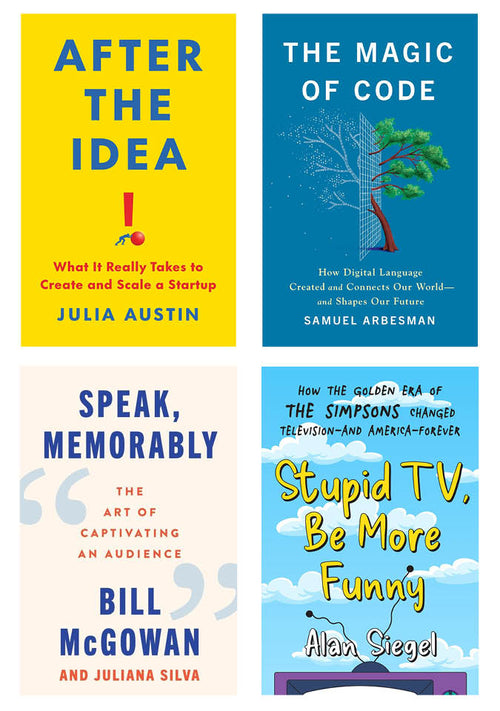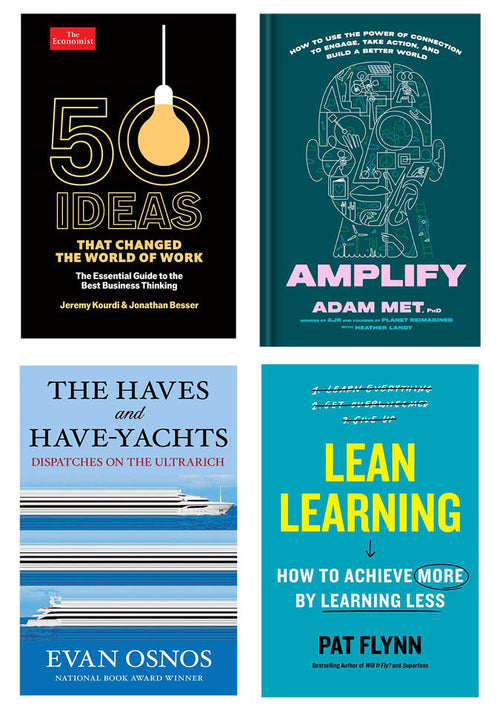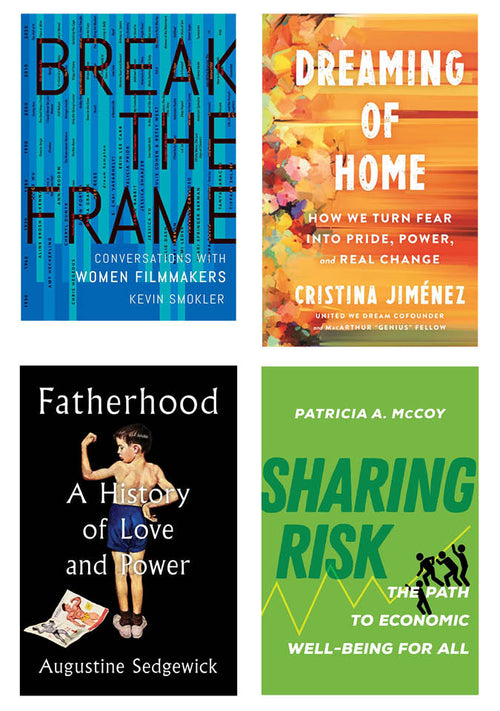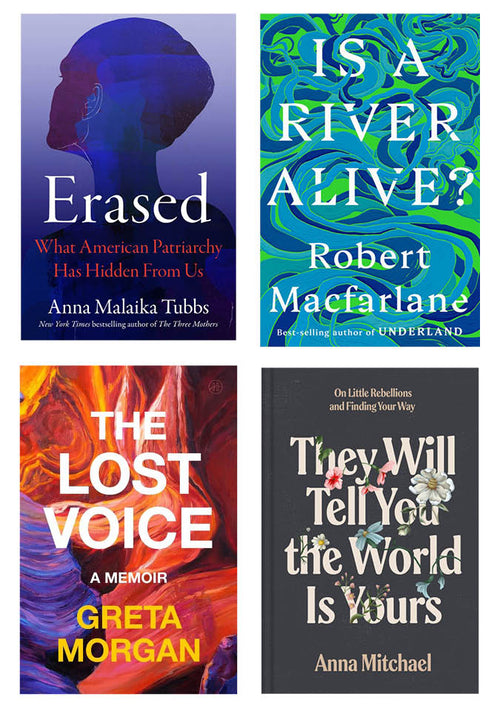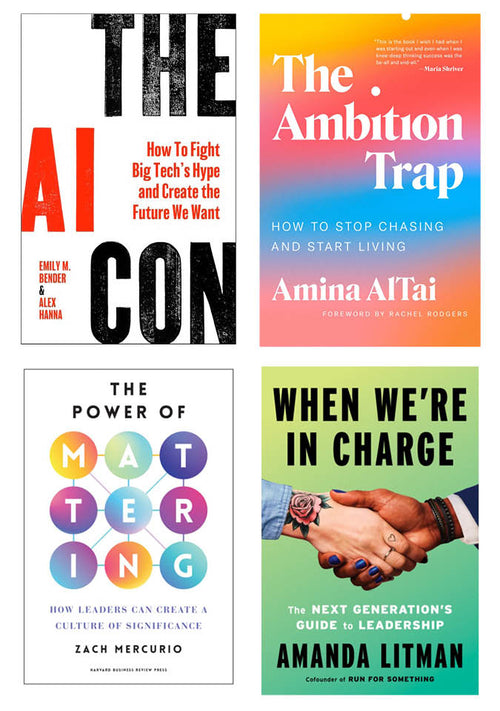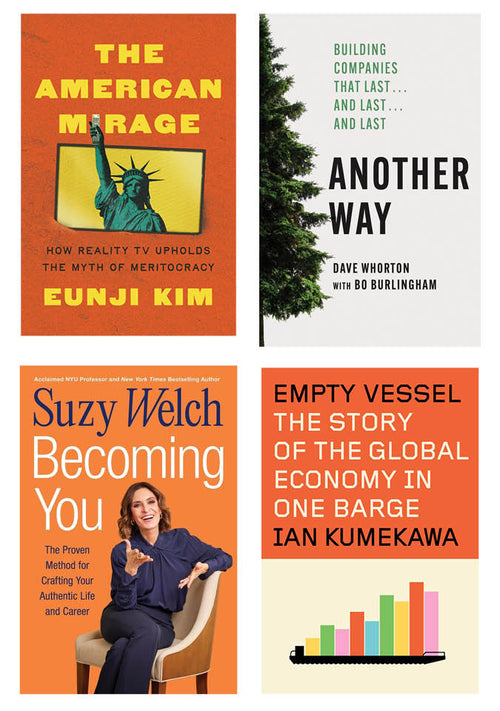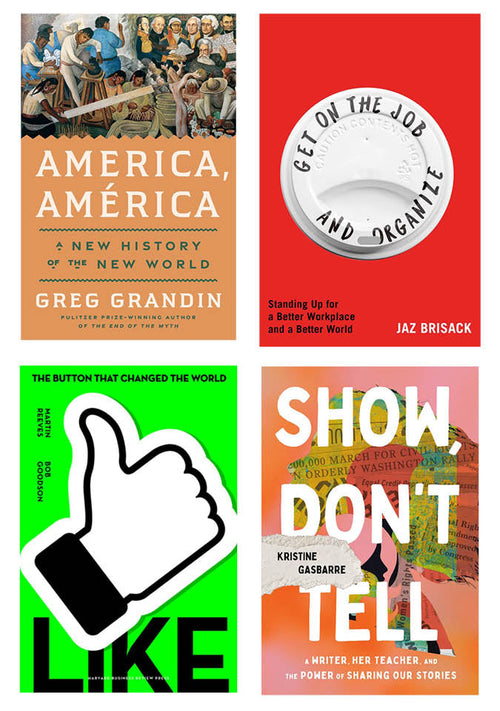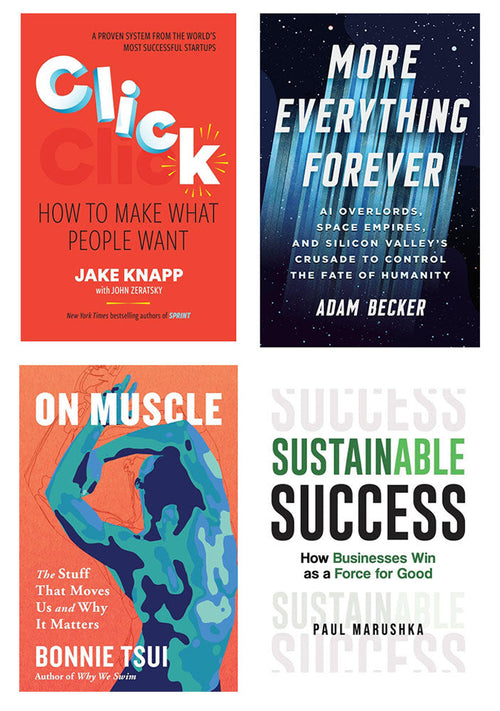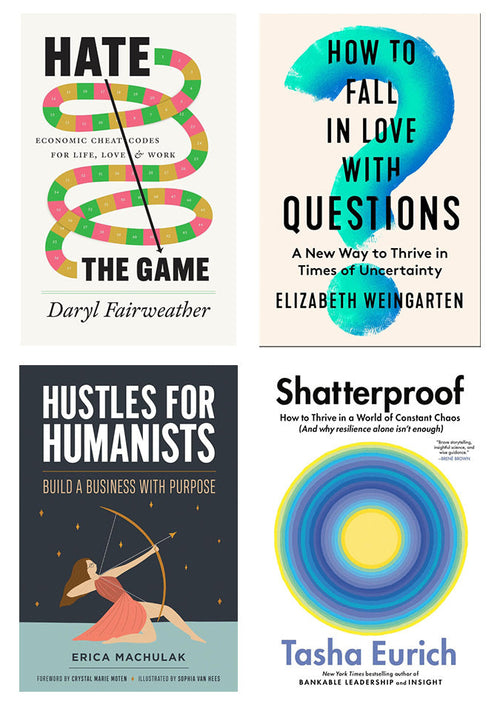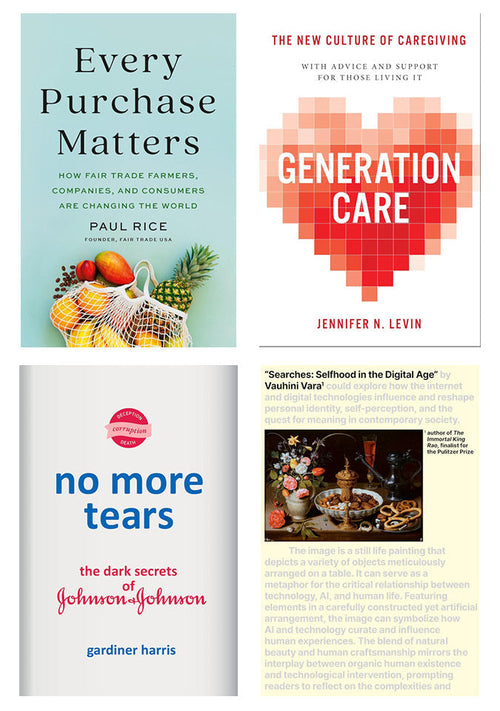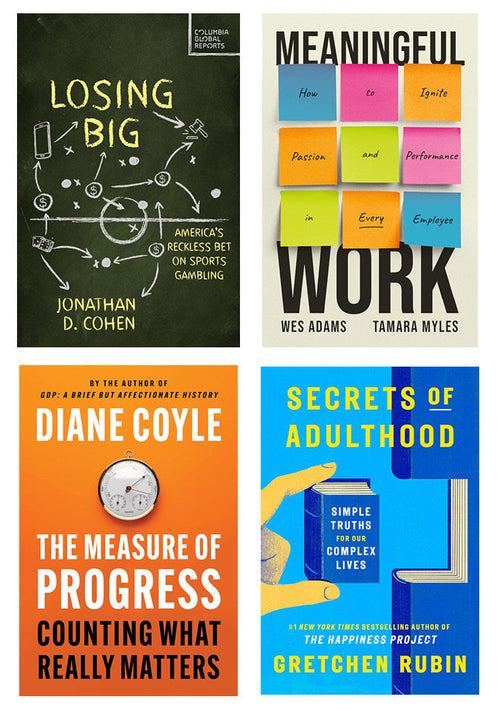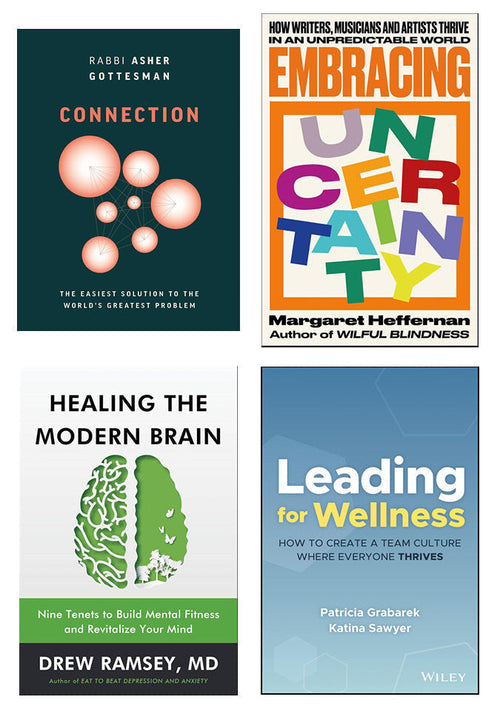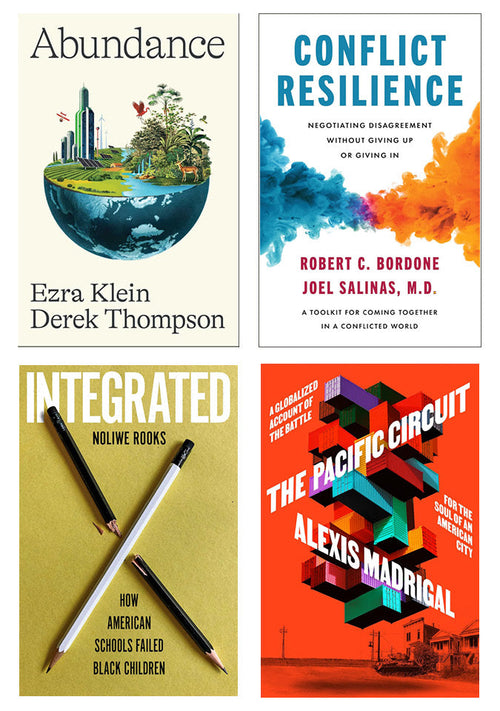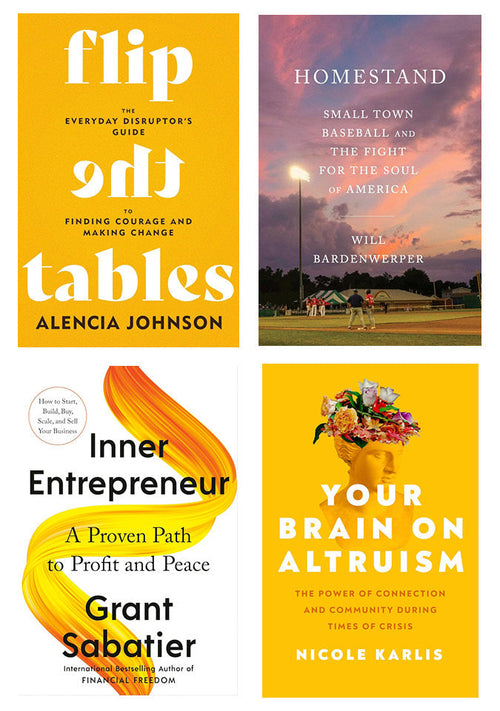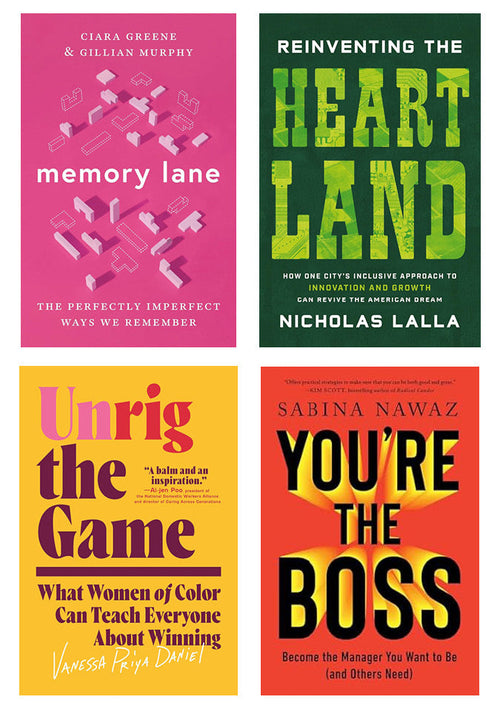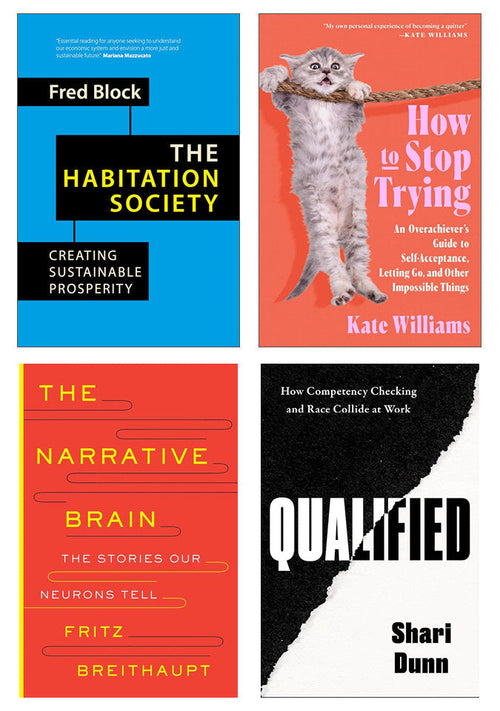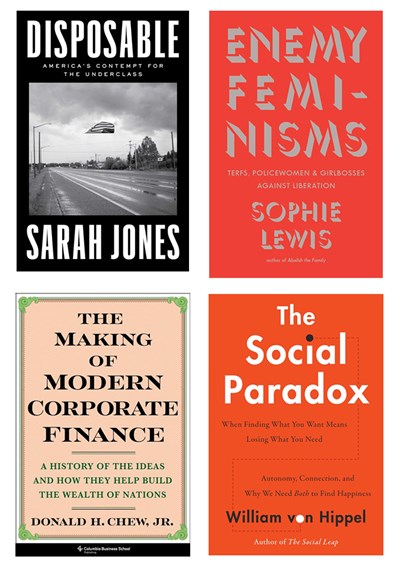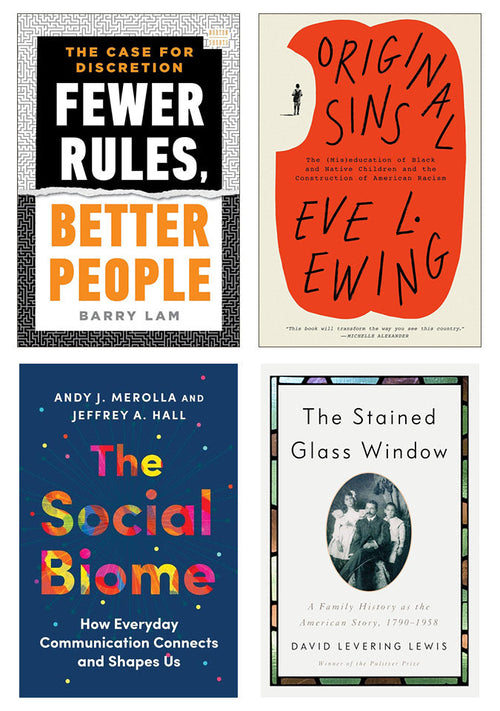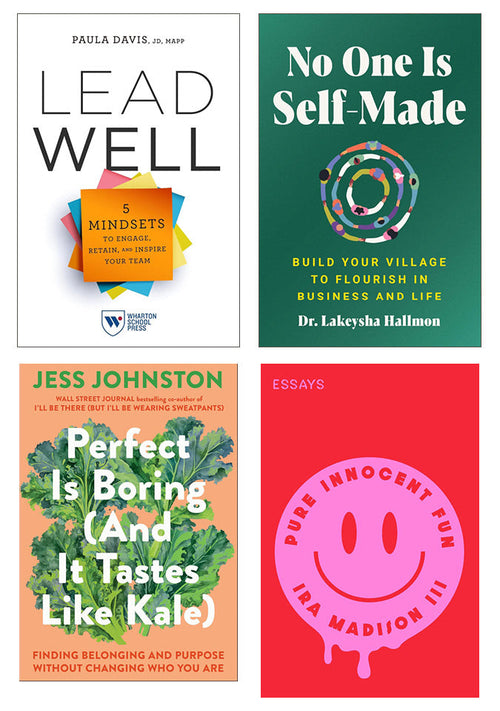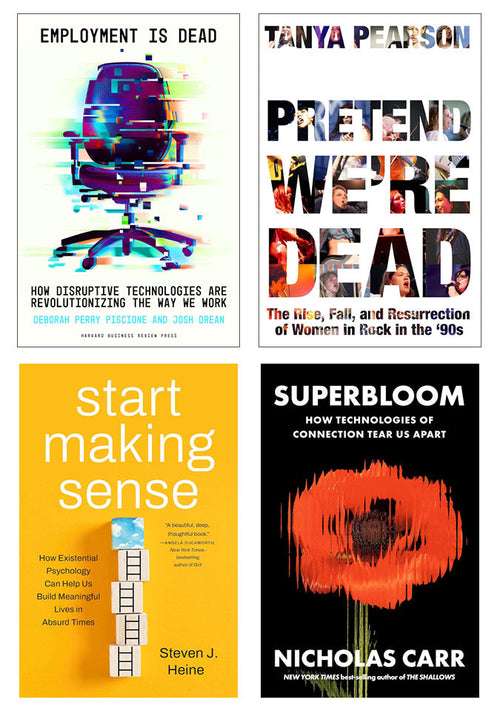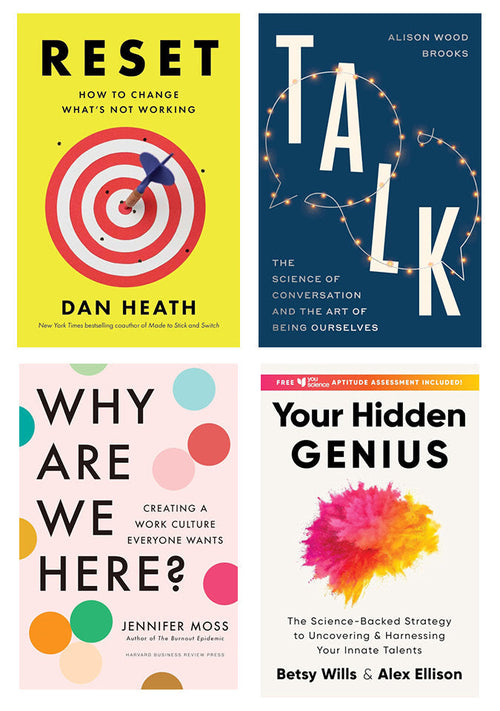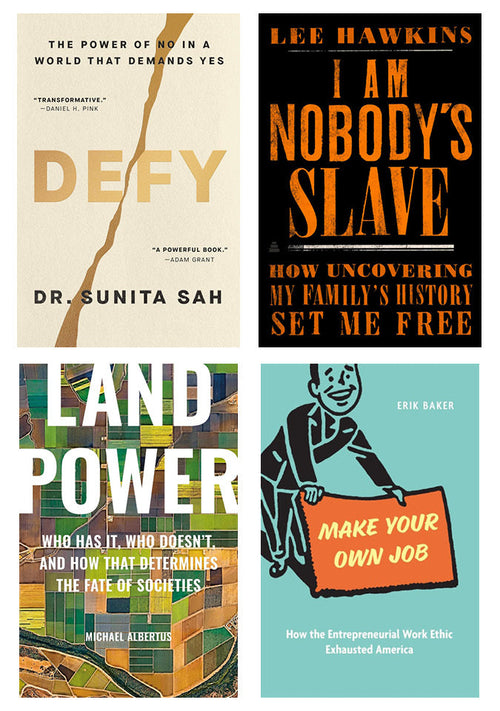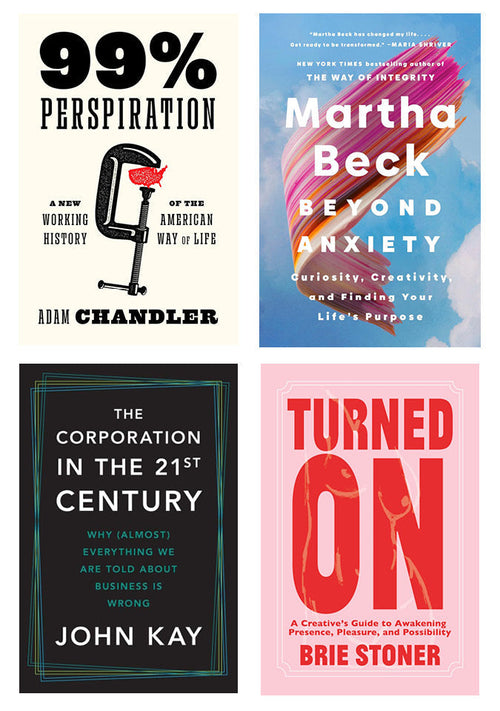Books to Watch | May 19, 2020
Each and every week, our marketing team—Marketing Director Blyth Meier (BRM), Digital Marketing Specialist Gabbi Cisneros (GMC), and Editorial Director Dylan Schleicher (DJJS)—highlights five new books we are most excited about.
This week, our choices are:

Chefs' Fridges: More Than 35 World-Renowned Cooks Reveal What They Eat at Home by Carrie Solomon and Adrian Moore, Harper Design
While we have been living in a sharing culture since the dawn of Facebook, we haven’t seen anything quite like the current “broadcast from home” revolution occurring during this pandemic. Anyone with a cell signal, a phone, and time on their hands basically has their own television network, tapping into our most voyeuristic selves. As journalists report stories from their living rooms and authors stage live readings from their bedrooms, we are either snooping the titles on their bookshelves or distracted by the cats on their sofas. And for those of us who love to cook, we are pausing every frame of kitchen organizational videos to figure out how the pros make the best use of their space, and zooming in when chefs open their fridges so we can sneak a glimpse of what they keep on hand. All of this is to say that when Chefs’ Fridges showed up, my afternoon was planned! The (mostly) North American follow-up to Inside Chefs’ Fridges, Europe, the authors reveal refrigerator habits and provide recipes for what chefs eat after a long day at the restaurant. Alongside endless bottles of local kombucha and a rainbow of homemade chili oils, you’ll also spot things like honey-preserved pine cones, “everyday champagne,” blue Kool-Aid, and Super Glue. Yes, as the authors interviewed subject after subject, they found “under those chef’s whites was almost always a personality trait not visible in the restaurant dining rooms, TV shows, or cookbook pages.” And while I’m curious that Carla Hall likes Koeze’s Cream-Nut peanut butter, or that Anthony Rose uses Soom tahini, what is taking me down an internet rabbit hole are the plastic containers meticulously labeled with various colors of painters tape, the mysterious homemade concoctions that these pros keep in weekly rotation. Christina Tosi’s dulce de leche, Alice Waters’ crab apple jelly, Mette Soberg’s fennel flowers with apple vinegar, Nancy Silverton’s Meyer lemon jam, Ivan Orkin’s sweet black beans, Enrique Olvera’s salted plums—all of these have my mind churning with new ideas for my weekend cooking adventures. (BRM)
The cookbook includes a new take on the muffuletta sandwich that you might also have the ingredients for sitting in your fridge right now!
Power Moves: How Women Can Pivot, Reboot, and Build a Career of Purpose by Lauren McGoodwin, Harper Business
The title Power Moves might sound intimidating, and maybe it sounds like something that requires intimidation to a degree you're not comfortable with. As a short, small-ish bodied, Mexican-American woman (is it a power move to call myself a woman when I still feel so young?) who attended college for filmmaking, I've thought a lot about the concept of power moves. Sometimes merely walking into (and not dropping out of) a class filled with males could feel like a power move to me. But why? And is that even a good thing? Why can't I just exist without worrying about how powerful or weak I appear to others? I had a lot of questions that I was so excited to get answers to. BUT, they had to wait, because author Lauren McGoodwin had much more important points to get across that I didn't even know I needed until I read them.
We've learned that upward movement is 'good' and sideways, backward, and any direction in between is 'bad.' These unrealistic expectations feed personal inflexibility because we're hardwired to believe that our next best move is always 'up,' and if it doesn't go that way, it's time to try a DIY human improvement project because if you can fix that 'thing' that is wrong with you, then the rest will fall into place.
This reframing of self-improvement is exactly what I (and many of us) need right now: quarantine has changed everything about how we live our lives, yet we hold ourselves to the same expectations as if nothing has changed. And oftentimes those expectations are derived from those around us rather than ourselves.
McGoodwin candidly shares her experiences with high expectations being defeated by a different version of reality after college: working temporary jobs, returning to living with a parent, interviewing at 15 different companies only to finally "settle" for a job as an administrative assistant, to name a few. She reminds us that our lofty career goals can (unhealthily and unfairly) absorb our whole lives. Maybe this career-focused existence points to a bigger problem in our culture, but for now, we can individually focus on expanding our outlooks on what the road to achieving our "dream career" can look like and how to avoid traps like glorifying busyness, burn out, and social media comparison. For anyone who feels stuck, lost, or confused by their career paths, McGoodwin's Power Moves is for you. It is not a guidebook to life but a manual for preparing you to guide yourself in a way that's healthy, helpful, and fulfilling. (GMC)
Lauren McGoodwin’s business, Career Contessa, provides career advice for women and their YouTube channel is full of short, helpful videos like this one on phone interview tips.
Slowdown: The End of the Great Acceleration—and Why It’s Good for the Planet, the Economy, and Our Lives by Danny Dorling, Illustrated by Kirsten McClure, Yale University Press
If you read business books, you have read for a decade or more about how exponential the rate of change is in the world today, and how to best react to and keep up with it as an individual or organization. But what if the rate of change is actually slowing down? Beyond the economic slowdown and contraction we are going through now due to disease, what if there is already a larger one occurring due to the larger realities of life here on Earth? Danny Dorling documents such a slowdown already happening in the industrialized nations of the world over the past forty years: declining birth rates and the slowing of population growth. In the debate about immigration, what is often missed is that most “advanced” economies of the world would be experiencing a decline in population without it. As the rest of the world industrializes, that pattern is going to replicate itself. And in a world addicted to economic growth, it is a reality that has dramatic implications for the world we live in.
In many ways, slowdown will take us back to what was normal before the great acceleration. To give just one example, prices could begin to stabilize worldwide. There is no need for inflation in a more stable future. Our grandchildren might find that a beer costs the same when they are sixty years old as it did when they had just turned twenty-one. In that world they may well not be able to make great amounts of money simply by “investing.”
Our society and our economy has been predicated on growth for generations now. What does the world look like if that is no longer happening or even possible? Life has sped up dramatically over the past few generations. My great grandparents lived in a world with the first trains and first telegraph poles. My grandparents heard some of the first radio broadcasts and drove in the first family cars. My parents remember when their families got their first televisions, and took their first flights in airplanes. I remember when my father brought our first desktop computer home. The internet is a big deal, and artificial intelligence may be even bigger, but it might not make our lives as unrecognizable to our great grandchildren as our great grandparents would be to ours—before all that occured. Cultural and social change will continue apace, but after generations of life speeding up, the pace of change may actually be slowing down, and that is not a bad thing. As Dorling writes:
Slowdown gives us time to reflect, and time to change what really matters. It gives us time itself.
Life is made of time, and I’m sure we are all hoping for a bit more of it. Is it possible that our attitudes toward that time will change as we’re no longer confronted with the fact that it seems to be exponentially speeding up? I don’t know, but I’m happy Danny Dorling has me pondering the question. (DJJS)
Danny Dorling explains “how the pandemic is re-shaping our imagination” in a recorded interview with The Prospect.
Weird But Normal: Essays on the Awkward, Uncomfortable, Surprisingly Regular Parts of Being Human by Mia Mercado, HarperOne
There's a throughline between the two books I'm writing about this week: being comfortable with being uncomfortable, and the power and growth that comes with that. Mia Mercado's Weird But Normal is a collection of candid, comedic, and insightful essays that reflect on racial identity, mental health, workplace dynamics, relationships, and other things we might all need a little help feeling a little less "weird" about. Frankly, so many topics in this book intersected with my own experiences that I began to feel a little creeped out. In a good way. I think if Mia and I had met in college (because she also attended UW-Milwaukee), she could have been my older-sister-friend who told me to give myself a break and also coached me on being an adult and we could chat about our First Communion dresses and how near-strangers assume the ethnicities of our sometimes-but-not-always white-passing faces.
Most of the essays are short, well-crafted, and very re-readable, as in: you'll probably want to re-read them out loud to your roommates, friends, significant others, etc. just to be able to share the pleasures of relatable grievances, accomplishments, and perspectives.
It's a coming-of-age collection that makes me feel like I just attended the most insightful night of standup comedy in the Midwest, which, as Mia describes it, "can be overly polite, mayo-based, stupidly affordable trash," "warm, hot, icy, autumn, three feet of snow forever, no sun and then too much sun, three months of gray slush, the idea of springtime but never really experiencing springtime, and apple picking," "where horse girls go to become horsewomen," "Lake Michigan in the summertime, beautiful and vast, lined with three thousand dead alewife fish," "two dead deer on the side of the road arguing over whether they like the Packers or the Bears," "where the world's supply of 'ope' comes from," and her and I are both realizing we love it. (GMC)
The BraveMaker podcast interviewed Mia Mercado on her writing, and it’s gratifying to hear how expertly she has converted the energy of her voice and sharpness of her intuition into her book.
Your 168: Finding Purpose and Satisfaction in a Values-Based Life by Harry M. Jansen Kraemer Jr., Wiley
I wrote a letter of recommendation for my wife’s nephew last week. He is an honor student, and was the standout star of his football team in high school (he couldn’t play in college due to injury), who is now moving onto grad school after obtaining his engineering degree. He has an impressive academic and extracurricular record, but what I wrote about was his kindness and empathy toward others—his values. That is, I feel, where he will, and where we all, make our most impact. I may have been influenced—or at least more entrenched—in this belief by reading Harry Kraemer, who has been spreading this much needed message for over a decade in books, and probably much longer in life.
His new book is all about time, how much we have of it in a week (168 hours), and how we put it to use. That is, in short, in every day and with every week, how we will spend our lives and make our impact. Where we pour the water of our time, attention, and energy is what will determine what we grow in this life, and it is based upon the values we hold close and dear. We all have the freedom to decide what those values are and how we live by them. Yours may not be the same as mine, and that is fine. What I hope is that we can follow Kraemer’s advice to take time for self-reflection, and to cultivate the balance (not work-life balance, but just life balance, because work is a part of life), self-confidence, and humility to live those values—to lead with those values. We will never be perfect in any of that, but to paraphrase the Soto Zen priest Suzuki Roshi (picked up out of the ChangeThis piece we are publishing this week), we are all already perfect, and we can all use a little improvement. Our time will eventually run out, but we have 168 hours this week to make that improvement for ourselves and others. Reading and heeding the advice of Harry Kraemer can help your values guide you. (DJJS)
Kraemer's blog has plenty of leadership advice, and this recent article advises how to manage time traps to cure uncertainty.
What we're reading away from work:
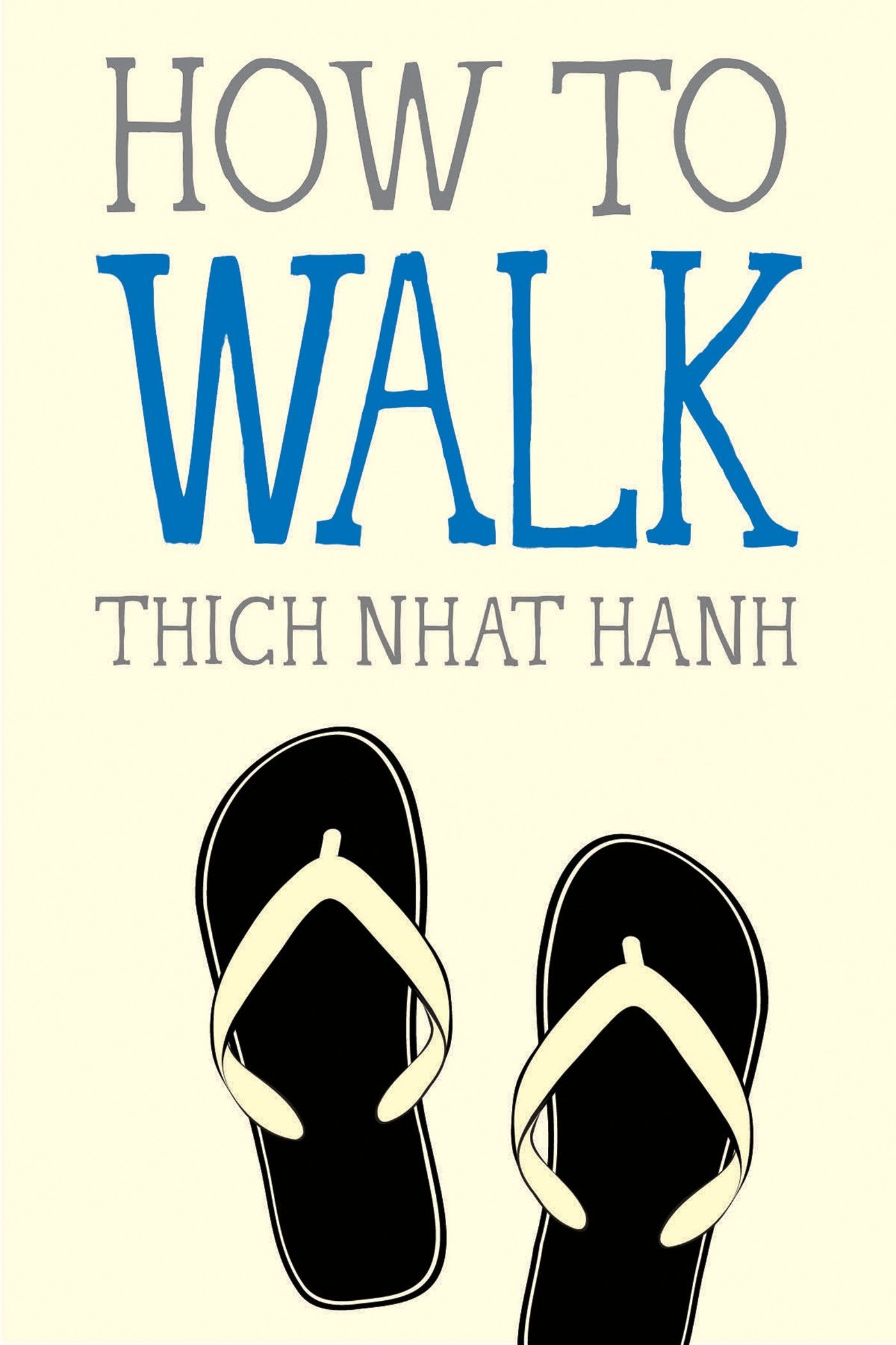 "For some time now, I’ve been using Thich Nhat Hanh’s “Mindfulness Essentials” collection as an ongoing touchstone to work through life’s problems. The iconic Zen teacher’s ability to—in a few brief lines—upend my entire perception of a situation is quite profound. I can’t think of a more fitting book to help us get through this time than How to Walk." —Blyth Meier, Marketing Director
"For some time now, I’ve been using Thich Nhat Hanh’s “Mindfulness Essentials” collection as an ongoing touchstone to work through life’s problems. The iconic Zen teacher’s ability to—in a few brief lines—upend my entire perception of a situation is quite profound. I can’t think of a more fitting book to help us get through this time than How to Walk." —Blyth Meier, Marketing Director
For a limited time, we’re offering free shipping on domestic mass mailings and waiving customization fees on bulk book orders—among other special offers.


